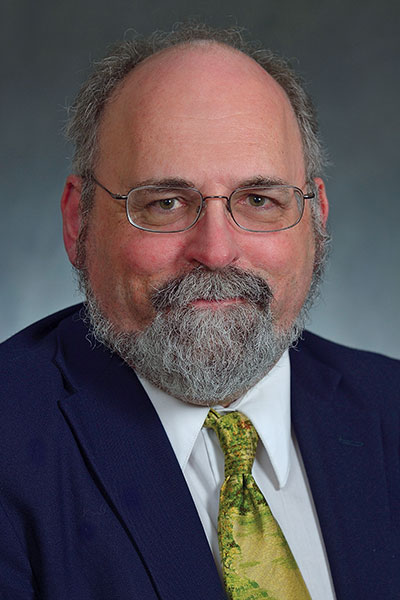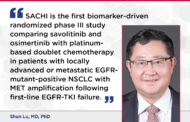
Nearly 6 years ago, IASLC published the first issue of the IASLC Lung Cancer News. And like many publications in recent years, ILCN has evolved from that original printed tabloid to a digital publication. However, the content, which highlights updates on thoracic malignancy research, including diagnostics, screening, tobacco control, therapeutic interventions, quality of life, symptom management, and survivorship, remains.
Given the rapid pace of advances in lung cancer research in recent years, every year I’ve served as editor of ILCN has been exciting as well as educational—and 2022 has been no exception. This past year has seen many developments in thoracic oncology.
Perhaps most notable—and somewhat surprising—being the US Food and Drug Administration’s approval of neoadjuvant nivolumab for non-small cell lung cancer. That approval opened the door for an immunotherapy-base treatment option prior to surgery for the first time. Of course, the surprise was not the approval itself, but the timing—coming before a formal presentation or peer-reviewed publication of the data. The news of the approval of neoadjuvant nivolumab spurred thoughtful debates about the FDA’s approval process and how to best meet patients’ needs in the context of the slow-moving world of clinical trials.
This past year also brought us a better understanding of the link between air pollution and lung cancer, when investigators from the Francis Crick Institute and University College London identified a mechanism through which tiny pollutant particles may trigger lung cancer in people who have never smoked.
As ILCN member Joan H. Schiller, MD, FACP, said, air pollution and climate change are not just political issues, or environmental issues, they are also health issues.
“Of all the health calamities that can affect a person, cancer is among the worse. And air pollution and some of its constituents are carcinogens. And the cancer they cause is lung cancer. As oncology health professionals, we have a duty to inform our patients and the public and do whatever we can to lessen the danger,” said Dr. Schiller, who led the creation of the official IASLC position on air pollution in partnership with the IASLC’s Early Detection and Screening Committee’s Environmental Working Group.
I often find our Patient Perspectives among our most compelling articles. We heard some intriguing viewpoints in 2022, including insights into how patients may feel when they must leave a clinical trial suddenly. We learned offboarding from clinical trials is a difficult, emotionally wrought process for which many, if not most, patients feel unprepared. The prospect of tumor progression can engender fear and anxiety, which must be addressed adequately. Unfortunately, many institutions do a suboptimal job of handling this challenging aspect of clinical research.
These are but a view of the topics discussed this past year in ILCN. We also covered the top science presented at many lung cancer conferences and oncology meetings throughout the year, including data from IMpower010 and NADIM II. We explored the consequences of health misinformation and disinformation online, the impact of racial disparities on lung cancer screening, the high rates of sexual dysfunction for women with lung cancer, and so much more.
I have no doubt 2023 will continue to bring exciting developments in thoracic oncology, and ILCN will be here to share expert commentary and context from leaders in our field. We’ll also be bringing you updates from IASLC’s committees, continued meeting coverage, patient perspectives, regulatory news, and more.
As always, we love to hear from our readers. E-mail us at [email protected] with questions, news tips or ideas, letters to the editor, guest commentaries or anything else that is on your mind.





